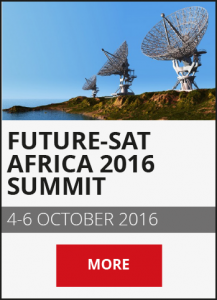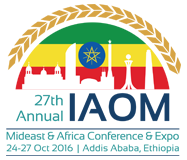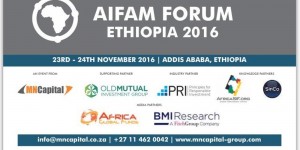The Government of Ethiopia takes the pleasure to host and organise the Sixth African Rift Geothermal Conference (ARGeo-C6) in collaboration with United Nations Environment Programme (UNEP), African Union Commission (AUC) and IGA East Africa Regional Branch (EARB).
UNEP on behalf of the Government of Ethiopia now invites to the ARGeo-C6 conference that will be held at UNCC, Addis Ababa Ethiopia, from 31st Oct to 7th Nov 2016.
The aim of this biennial conference is to promote regional cooperation, create an information exchange platform on the exploration, development, investment and utilisation of the geothermal resources in the region and elsewhere in the world.
The conference is sponsored by the Ministry for Foreign Affairs of Iceland, KfW, BGR, US Power Africa and other partners. It is being organize under the auspices of the UNEP ARGeo Programme as one of its biennial geothermal conferences.
It will be held at the UN Conference Center, Addis Ababa- Ethiopia.
The main conference will be held from Nov. 2-4, 2016. Parallel geothermal pre-conference short courses will be held Oct. 31 öNov. 1, 2016. Two post-conference field trips to Aluti and Tendaho geothermal fields will be held on November 5-6 and November 5-7, 2016.
The conference will feature an exhibition and provide ample business networking opportunities with lead personalities and institutions in the geothermal sector from Africa and the rest of the world.

Future-Sat Africa is Extensia’s inaugural satellite summit in partnership with the Global VSAT Forum. Future-Sat Africa 2016 will focus on satellite playing an essential role in Africa’s future digital communications strategy and how it integrates with the continent’s wider communications mix.
Attendees will include Policy Makers, Regulators and Major ICT End Users from the Military, Oil and Gas, Education, Telecoms and other sectors, across Africa together with a select number of Satellite and Wireless service and infrastructure solution providers, brokers, vendors, consultants and investors who can support key business requirements.

AFRICA IS CONNECTED!
BUT 688.7 MILLION PEOPLE STILL LIVE BEYOND 10KM REACH OF A FIBRE NODE
Source – CTO 2012
Future-Sat Africa is Extensia’s inaugural satellite summit in partnership with the Global VSAT Forum. Future-Sat Africa 2016 will focus on satellite playing an essential role in Africa’s future digital communications strategy and how it integrates with the continent’s wider communications mix.
Attendees will include Policy Makers, Regulators and Major ICT End Users from the Military, Oil and Gas, Education, Telecoms and other sectors, across Africa together with a select number of Satellite and Wireless service and infrastructure solution providers, brokers, vendors, consultants and investors who can support key business requirements.
The Ethiopian Christian culture dates back to the emergence of Christianity and continues vibrantly today. This long tradition makes Ethiopia a unique place to visit and study. Our seminar focuses on Ethiopian Christianity and its connections with the Eastern Mediterranean in Antiquity and the Middle Ages. The theme includes the early reception of Christianity in Ethiopia, the emergence of a Christian state, and the development of the distinct Ethiopian Church. We explore the relations between Ethiopia and the Roman Empire, Persia, Egypt and Palestine up to the Crusades, and discuss distinct Ethiopian traditions in connection with Judaism and Islam. We will visit the late antique city of Aksum and the world-famous rock-hewn churches in Lalibela, as well as number of ancient monasteries, participate at a pilgrimage and meet with students and professors at two Ethiopian universities.
The seminar gives an exceptional opportunity to get to know Ethiopian Christianity which is an often neglected field of study in Nordic universities, despite the fact that several important early Jewish and Christian texts are only preserved in Ge’ez, the ancient Ethiopian language. We pay special attention to the diverse cultural manifestations of religion, including archaeology, art history, architecture, music and literature, theology and Church practices, general history, trade and international relations. The participants are invited to study texts in their traditional contexts and as part of the wider material culture.
Our seminar is the second of a number of Nordic PhD-seminars arranged by the Nordic Network for the Study of Judaism, Christianity and Islam in the First Millennium (NNJCI), a network of PhD students and faculty from Nordic academic institutions. For more, see http://nnjci.mf.no/.
Structure of the seminar
The duration of the seminar will be two weeks. The program covers several major sites in Ethiopia. In addition to excursions, there will be lectures given by experts on various topics. Each participant is also required to prepare a short presentation (ca. 20 minutes) on a related topic based on reading of relevant materials (see the list of reading below). The student may present either his/her own PhD project or a paper on a theme connected to the program.
Practical information
Participants: The number of participants is restricted to 12 students (and three teachers). The seminar is for PhD-students, but it will also be open for advanced master’s students and postdoctoral researchers if the available places are not filled by PhD-students.
Cost: The cost for the course is 9.000:- SEK excl. international air fare. This includes all domestic transport, half-board accommodation, all entrances, guide, lectures, materials. Travel to Ethiopia must be with Ethiopian Airlines in order to have substantial reduction in domestic fares. The flights from Stockholm to Addis Abeba should not be more than 5000 SEK if booked early. All participants are themselves responsible for booking the international flights (including their way to Stockholm.)
Reading list: All participants should prepare for the seminar by reading approximately 300 pages. The reading list will be distributed before September 1st.
Credits: The seminar equals 5 ECTS, but participants are themselves responsible for having these credits accepted by their doctoral program.
Organizers: Lund University (Samuel Rubenson, Mengistu Gobezie) and University of Helsinki (Outi Lehtipuu, Anna-Liisa Tolonen, in co-operation with the Finnish Institute in the Middle East).
Information: Follow our facebook-page (https://www.facebook.com/groups/1625904417675426/) or contact Samuel Rubenson (Samuel.Rubenson@teol.lu.se) or Outi Lehtipu (outi.lehtipuu@helsinki.fi).
Application
Applications should be sent to Outi Lehtipu (outi.lehtipuu@helsinki.fi) before April 15th 2016.
Accepted applicants will be informed by May 10th, and be asked to pay a deposit of 4500 SEK by June 1st.
Click here for the application form.

The International Association of Operative Millers is an international organization comprised of flour millers, cereal grain and seed processors and allied trades representatives and companies devoted to the advancement of technology in the flour milling, cereal grain and seed processing industries.
Founded in 1896, the International Association of Operative Millers (IAOM) is an international organization comprised of grain millers and allied trades representatives devoted to the advancement of education and training opportunities in the grain milling industries.
Among its members, IAOM promotes a spirit of fellowship and cooperation, enhances their proficiency, and advances their interests in industry activities. With 15 districts around the world, the IAOM provides an international forum for networking; the exchange of ideas, technical and educational opportunities; and the discovery of new products and services.
IAOM provides an international forum for networking, the exchange of ideas, technical and educational opportunities, and the discovery of new products and services.
 The Ethiopian Chamber of Commerce and Sectoral Associations (ECCSA) is organizing the 9th Ethio-Chamber Interna¬tional Trade Fair from Nov. 09 – 13, 2016 at Addis Ababa Exhibition Center & Market Development Enterprise.
The Ethiopian Chamber of Commerce and Sectoral Associations (ECCSA) is organizing the 9th Ethio-Chamber Interna¬tional Trade Fair from Nov. 09 – 13, 2016 at Addis Ababa Exhibition Center & Market Development Enterprise.
The overall objective is to contribute to the development of competitive industry and business sector mainly through the promotion of products and services.

The Africa Investment Funds and Asset Management (AIFAM Forum) convenes regional capital owners (pensions, sovereign funds, insurers, central banks etc.), fund managers, and investment professionals from the continent to meet with institutional investors and other stakeholders who are interested in opportunities on the continent. The meeting is an invitation-only session on developing viable financial products/structures that can increase the availability of capital to invest in the continent’s infrastructure, deepen capital markets innovation and mainstream investing alternative asset classes.

The second Conference on Land Policy in Africa will be hosted by the Land Policy Initiative (LPI) which is a joint initiative of the African Union Commission, the United Nations Economic Commission for Africa, and the African Development Bank. The Conference is a policy and learning event whose goal is to deepen capacity for land policy in Africa through improved access to knowledge and information on land policy development and implementation. This Conference follows an inaugural Conference held in November 2014 in Addis Ababa, Ethiopia that was attended by close to 400 participants.
The Conference of November 2017, dubbed CLPA-2017, will be held under the theme: “The Africa We Want: Achieving socioeconomic transformation through inclusive and equitable access to land by the youth.” This theme supports the declaration of 2017 by the African Union as the Year of Youth under the theme “Harnessing Africa’s Demographic Dividend through Investment in youth”. The format of the Conference will include plenary and parallel sessions, side events, exhibitions, and the use of social media to reach a broader audience, including youth.
Young African practitioners will have the unique opportunity to learn from world renowned international experts in Aikido, embodied leadership, somatic education, and conflict resolution. In addition, the summit will bring respected East African traditional elders to share their wisdom and ancient traditions in resolving conflict. Together, these two facets of the workshop will provide African young adults, as well as their non-African peers, a rich perspective on the wealth of the ancient traditions of African nations, while they also benefit from the global perspective of non-African teachers. International experts and African elders will share their knowledge and practices with one another, providing a unique stage that places African tools and approaches to leadership and conflict resolution on par with Western and Asian practice and perspectives. The workshops will serve as an unprecedented cultural exchange and collaboration for peace.

